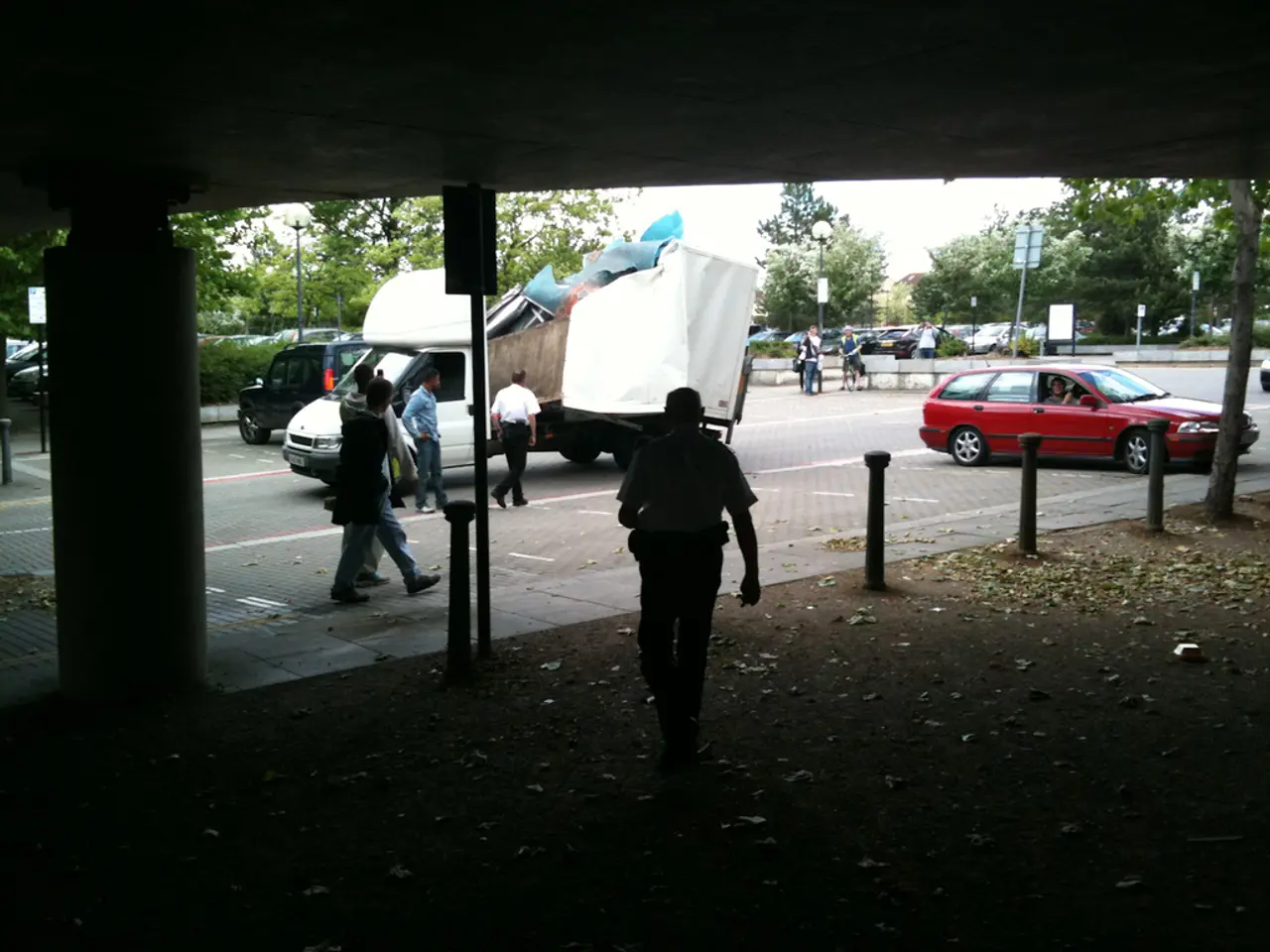London Mayor Sadiq Khan under fire for raising Congestion Charge, with drivers facing an additional £80 million in yearly costs
London's Congestion Charge undergoes significant changes, impacting electric vehicle owners and tradespeople while generating substantial revenue for Transport for London (TfL).
Effects on Electric Vehicle Owners
Starting from December 25, 2025 (or January 2, 2026, depending on the source), electric vehicles will no longer be exempt from paying the Congestion Charge. This marks a significant shift, as electric vehicles will now contribute to the charge, impacting their owners financially. A 25% discount may be available for electric vehicle owners who sign up for TfL's Auto Pay system, but this does not fully mitigate the cost increase. The loss of the exemption is estimated to cost electric vehicle drivers between £75 million and £83 million annually.
Effects on Tradespeople
Tradespeople, including those relying on independent garages for vehicle servicing, may face increased travel expenses due to the higher Congestion Charge. This could disproportionately affect key workers. The Independent Garage Association has expressed concerns that the fee increases could disadvantage independent garages and their customers by increasing operational costs.
Estimated Annual Revenue
The changes are expected to generate between £415 million and £455 million over the next five years for TfL, with the annual increase from removing the electric vehicle exemption alone estimated at £75 million to £83 million. The revenue increase is partly driven by the need to offset declining tax collections as more drivers switch to electric vehicles, aligning with the government's Zero Emission Vehicle mandate.
The daily charge for entering the congestion zone will rise from £15 to £18. However, firms have expressed concerns that their costs will rise due to the extra charges, potentially leading to going out of business. Electric vans and lorries used by tradespeople and delivery firms will be liable for the congestion charge at a 50% reduced cost.
The congestion charge zone covers the area from Kings Cross in the north to Vauxhall in the south, and Paddington in the west to Whitechapel in the east. Petrol-powered motor tricycles and motorbikes will remain exempt from the congestion charge. The discount on the congestion charge only applies when using TfL's Auto Pay service, with costs higher if payments are made later.
From March 2027, anyone moving into the charging zone with a non-electric car will have to pay the full amount to drive in their own neighborhood. TfL is set to make more from drivers from March 2027, when local residents with non-electric cars will no longer be eligible for the 90% discount.
The AA spokesman expressed disappointment towards TfL for penalizing electric vehicle drivers, while Tom Jervis, the consumer editor of Auto Express, found it concerning that electric vehicle drivers will be penalized. However, TfL sources have emphasized that the plan to remove discounts for electric vehicles at the end of 2025 has always been the plan.
Business owners have warned that the charges will ultimately have to be passed on to customers, and electric vehicle owners should be supported, not squeezed, according to Tom Jervis. Tiny electric city cruisers like the Citroen Ami will also be liable for the congestion charge, despite being a fraction of the size of a normal car.
- The transportation industry, specifically electric vehicle owners, will have to pay the Congestion Charge in London starting from December 25, 2025, or January 2, 2026, according to various sources, which will impact their financial lifestyle.
- The revenue generated from the Congestion Charge changes is projected to reach between £415 million and £455 million over the next five years, benefiting Transport for London (TfL), partially due to the removal of the electric vehicle exemption.
- Tradespeople could face increased travel expenses due to the higher Congestion Charge, potentially disproportionately affecting key workers, as independent garages might see higher operational costs.
- In business news, concern has been expressed by firms that increased charges could lead to higher costs, potentially causing some businesses to shut down.
- The political aspect involves debate on whether electric vehicle drivers are being penalized by TfL, with voices like the AA spokesman and Tom Jervis of Auto Express raising concerns.
- Technology and science, particularly environmental science, play a role in this situation, as the plan to remove discounts for electric vehicles aligns with the government's Zero Emission Vehicle mandate, contributing to the general news about climate-change and the environment.




